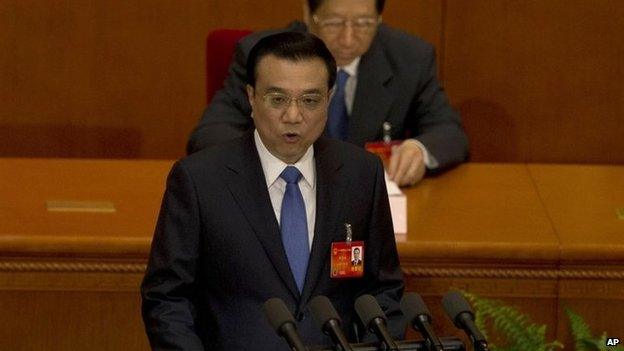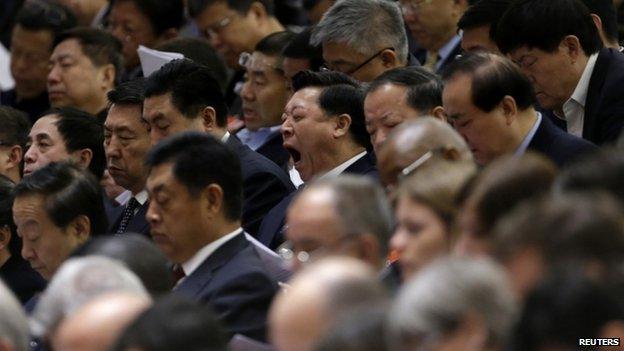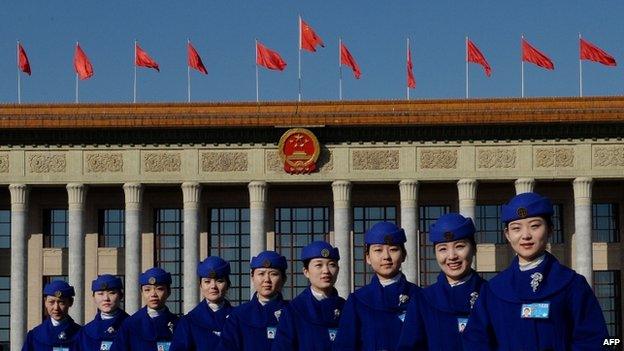When will China surprise with real change?
- Published

Li Keqiang spoke for 105 minutes at the annual National People's Congress
A Chinese premier's opening speech to the People's Congress has been likened to a US president's State of the Union address.
Both provide a report card on the work of the government and an outline of the plan for the year ahead.
And both are delivered over the heads of assembled politicians to the country at large.
The similarity should not be extended too far of course.
China's politicians speak for much longer. Premier Li Keqiang managed 105 minutes on Wednesday, a full 40 minutes more than US President Barack Obama's speech in January.
And Americans might readjust their television sets if, within the first few minutes, they find themselves digesting the number of small reservoirs successfully reinforced this year (15,000 apparently) or the national decrease in chemical oxygen demand (2.9%).
But what is certainly true, leaving aside the stream of Chinese data, is that both speeches are short on policy detail and long on platitudes.

Mr Li's speech is delivered in front of politicians gathered in Beijing's Great Hall of the People
Pundits find themselves desperately combing presidential addresses for evidence of a killer news line, of something surprising. So it is with a Chinese premier's work report.
The lack of that element of surprise won't stop many observers cheering the broad thrust of what Li Keqiang had to say.
Lack of surprise
If nothing else, it is a clear statement of intent to continue strengthening and deepening China's economic (not political) reform.
We've heard much of it before - the liberalisation of interest rates; further privatisation of state-owned industry; the overhaul of China's restrictive residency laws that prevent migrant workers from becoming full citizens in the cities where they live.
There's a renewal of the promise to do something about the pollution now choking Chinese cities - although not what some have suggested is a suspiciously blue-skied Beijing today.
President Obama's opponents might well think him capable of using a phrase like "socialist modernisation drive", but it's unlikely they'll ever accuse him of fixing the weather.

China has renewed its promise to combat air pollution affecting cities
And finally there's that predicted 2014 growth rate, 7.5%, as many expected it to be.
It is the same as last year, a worrying sign perhaps that China is not yet ready to wean itself off the huge infrastructure spending and borrowed money that makes such a growth rate possible.
So perhaps then it's the lack of surprise that is really the most surprising thing.
Given all of the myriad challenges China is now facing, and they are big challenges, some are wondering when its policymakers are going to unveil the really radical changes that are so long overdue.